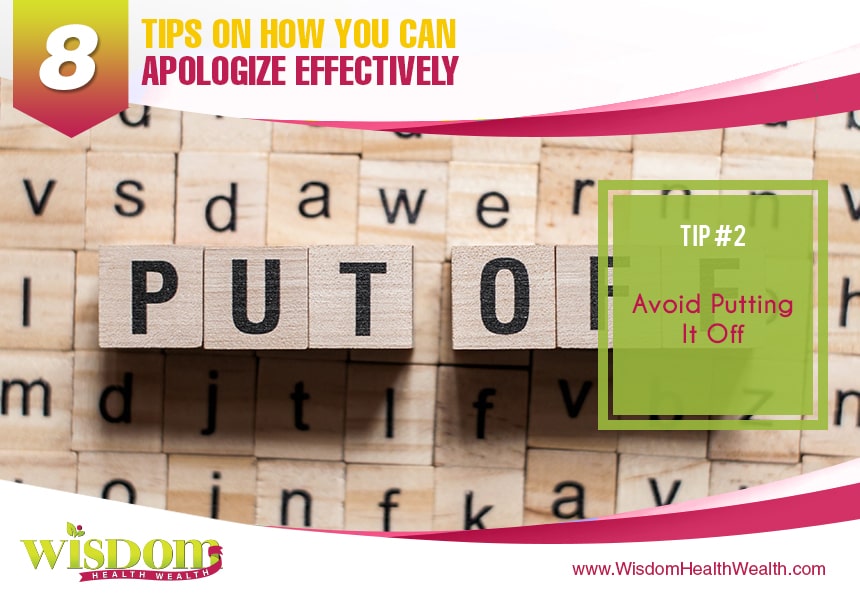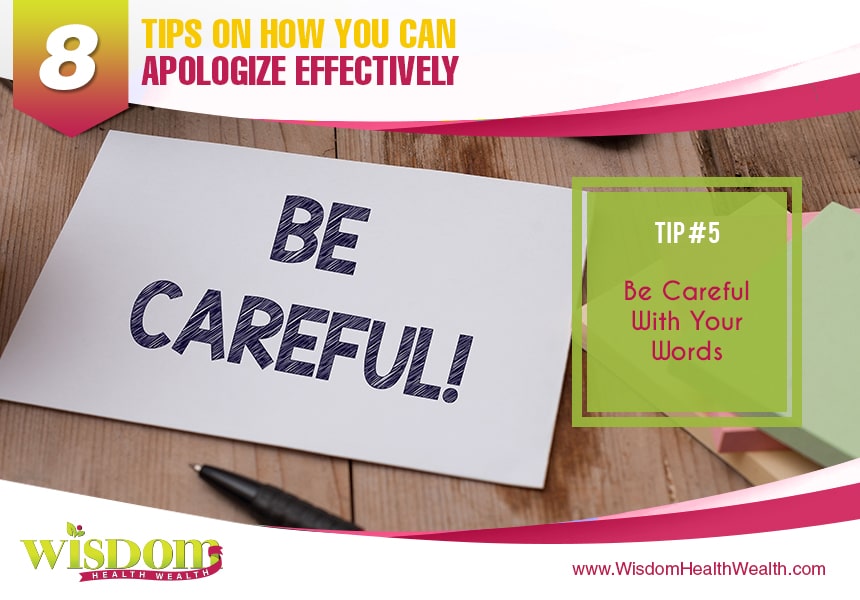
8 Tips On How You Can Apologize Effectively

Best Advice On How To Apologize Better
Everyone makes mistakes from time to time that require an apology. Maybe you lost your temper or exercised poor judgment. Not all apologies are created equal; some are more effective than others. Learning to apologize appropriately is a valuable skill you can rely on, again and again. Keep these tips in mind when making an apology:

1 Be Prepared For Rejection
Not all apologies are accepted. Depending on the personality of the offended party and the type and severity of your offense, it's possible your apology could be rejected. How will you feel if this happens? Do you have a follow-up plan, or are you willing to just let the matter go? Since not all offended people are easily soothed, be prepared for any possible outcome.

2 Avoid Putting It Off
The longer you take to give your apology, the longer both of you will suffer. Waiting too long also provides an opportunity for the misunderstanding to grow. Apologizing tomorrow might be too late. Be brave and courteous. Do it and move on.

3 Minimize The Explanation
Explaining yourself for too long, only sounds like an excuse and an attempt to shift blame. Too much explanation will result in your apology to appear insincere. If explaining is helpful, include it, but avoid making your apology all about you. Keep the focus on the other person.

4Apologize From Your Heart
Everyone had all been on the receiving end of apologies that were less than sincere. Make your apology genuine and from the heart. An insincere apology can result in a bigger mess than you had before the apology. It's not easy to make yourself vulnerable in a potentially hostile situation, but it's the only method that can work.

5Be Careful With Your Words
There are a thousand ways to say, you're sorry. Give the situation the time it deserves, and think about what you want to say. Consider how the other person will receive it. How likely are your words to accomplish your objective? You might want to enlist the help of a friend; practice your apology and ask for constructive criticism.

6Don't Expect Anything In Return
At the very least, you'll get to ease your conscience at least a little. You might even receive all the forgiveness you seek. Depending on the circumstances, you might have to wait a while to receive anything at all. Do the best you can, so you can walk away from the interaction: knowing you gave it your best.

7Fix The Damage You've Caused
Did you back up over their rake with your car? Buy another rake. If you spilled fruit juice on their carpeting, pay to have it professionally cleaned. Straighten everything out with everyone that was affected. It's possible your transgression may have caused additional challenges with others.

8Reflect To Avoid It From Happening Again
What was the primary cause of your misdeed? Did you act without a full understanding of the matter? Was your language unjustifiably harsh? What can you do to ensure the same situation doesn't reoccur? It might take some time to find a solution.
Be prepared the next time, an apology is necessary. Be bold enough to make your apologies quickly, sincerely, and selflessly; but spend at least a few minutes choosing your words wisely. It makes a difference. Some apologies are better than others. After you've given your explanation and done your best to mend the situation, accept the outcome, and move on.
About Author
Jackie Wing
GET THE FREE MAGAZINE DELIVERED STRAIGHT TO YOU:









































